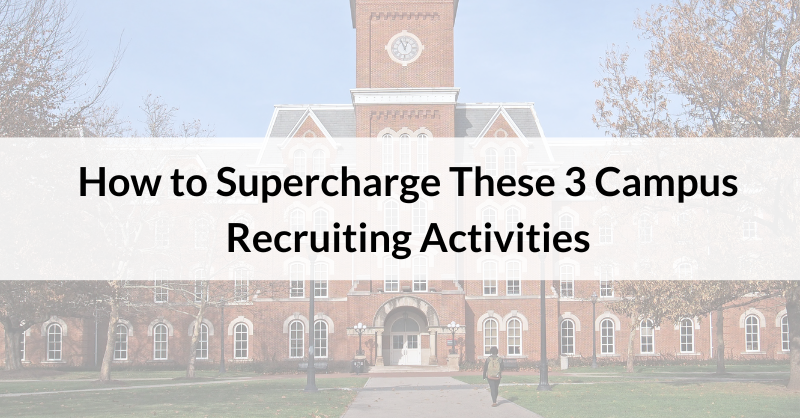
Mark Cuban's Take on DEI
While I try to avoid getting dragged into debates on social media, I admit I got pulled into one that involved my favorite shark, Mark Cuban, and directly impacts campus recruiting. Unlike most commentary, my fellow Indiana alum drafted a really interesting perspective on DEI that did not include any mention of social responsibility or cite research comparing corporate performance.
Instead, the always direct maverick businessman highlighted at a very tactical level how diversity, equity, and inclusion provide his companies with a competitive advantage:
Diversity: Good businesses look where others don't, to find the employees that will put your business in the best possible position to succeed. The loss of DEI-Phobic companies is my gain.
Equity: Treating people equally does not mean treating them the same. Put your employees in a position to succeed. Recognize their differences and play to their strengths wherever possible. When it's not done well it can create tension and resentment.
Inclusion: One of my favorite sayings is that "Great employees reduce the stress of those around them." Great companies create environments that reduce unnecessary stress of their employees (I'm not talking “hitting quota” or “getting the product out the door” stress), which in turn increases productivity. This is what Inclusion is all about. Making all employees, no matter who they are or how they see themselves, feel comfortable in their environment and able to do their jobs.
I love how this captures the benefits of authentic DEI in plain English. While we can debate the specifics around various DEI programs, this Hoosier's points are indisputable irrespective of one’s political or social beliefs.
What does this mean for early-career recruiting?
First, this highlights the benefits of engaging candidates who don’t attend focus schools, looking beyond traditional majors, and removing other non-predictive barriers like GPA. Without these artificial constraints, organizations stop competing for the same handful of candidates and see metrics like conversion, retention, and hiring cost improve.
Second, research from the National Association of Colleges & Employers highlights the importance of core skills (e.g. communication, problem solving, coachability, etc.). Since each of us develops these competencies in different ways (and often beyond the classroom), it’s vital that the recruiting processes allow candidates to demonstrate these skills, especially because they are often not captured on a transcript.
Finally, processes should ensure that candidates and existing employees feel included. This goes beyond asking the HBCU grad to show up on campus or having a website with the “right” content, but rather having a process that allows candidates and organizations to mutually determine if it’s the right role. In fact, we’ve seen some great collaborations between ERGs and campus recruiting teams.
While the debates about specific DEI policies will continue, there can be no debate about the underlying benefits for early-career programs that come from (i) expanding the pool of prospective candidates, (ii) hiring for core skills, and (iii) ensuring candidates (and existing employees) feel included in the process.
You can read the original thread here.



-1.png)
